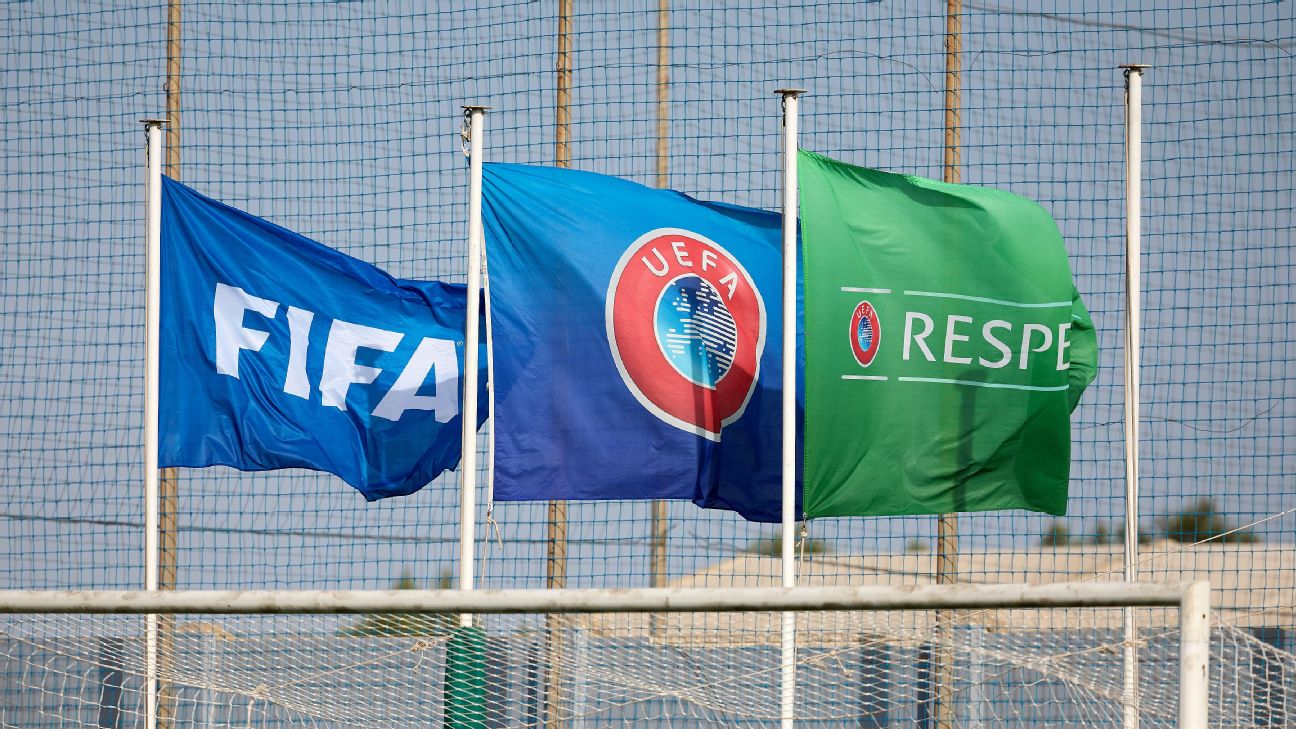Court rules UEFA, FIFA can’t block Super League

Europe’s top court ruled that UEFA’s control of European football is an illegal monopoly under EU competition law on Thursday, in a significant boost to the Super League project.
The Super League and its backers, A22 Sports, argued that UEFA’s prohibition of the would-be competition — first launched in April 2021 — and its threatened punishments for participating clubs were incompatible with Europe’s laws on freedom of competition.
– Stream on ESPN+: LaLiga, Bundesliga, more (U.S.)
Thursday’s ruling by the European Court of Justice [ECJ] found that FIFA and UEFA’s rules requiring new football competitions to be subject to their prior approval were “contrary to EU law.”
“The FIFA and UEFA rules making any new interclub football project subject to their prior approval, such as the Super League, and prohibiting clubs and players from playing in those competitions, are unlawful,” the court said. “There is no framework for the FIFA and UEFA rules ensuring that they are transparent, objective, non-discriminatory and proportionate.
“Similarly, the rules giving FIFA and UEFA exclusive control over the commercial exploitation of the rights related to those competitions are such as to restrict competition, given their importance for the media, consumers and television viewers in the European Union.”
The court found that organising football competitions is an economic activity and “therefore must comply with the competition rules and respect the freedom of movement.”
The decision goes against a non-binding opinion issued by the court’s Advocate General in December 2022, which had argued that UEFA and FIFA’s regulations — and UEFA’s role as sole governing and disciplinary body for European football — were in line with EU law.
The court found that FIFA and UEFA were “abusing a dominant position” in their control of the football market. It did make clear that its ruling “does not mean that a competition such as the Super League project must necessarily be approved,” saying that it was a verdict on FIFA and UEFA’s rules in general, rather than any specific project.
Nevertheless, the decision is a significant boost for the Super League project, which seeks to replace UEFA’s Champions League.
“We’ve won the right to compete,” Bernd Reichart, A22 Sports CEO said. “UEFA’s monopoly is over. Football is free. Now the clubs won’t suffer threats and punishments. They’re free to decide their own future.”
An initial 12 clubs — the Premier League’s Arsenal, Chelsea, Liverpool, Manchester City, Manchester United and Tottenham Hotspur, LaLiga’s Atletico Madrid, Barcelona and Real Madrid and Serie A’s AC Milan, Inter Milan and Juventus — signed up as members of the breakaway Super League for its launch on April 18, 2021, in a move that stunned the football world.
The project, led by Real Madrid’s Florentino Perez and Juventus’ Andrea Agnelli, was born of frustration at UEFA’s dominant role as Champions League organisers, and unhappiness at the competition’s format and revenue model.
Vocal opposition from football’s governing bodies, fans and politicians — in particular, in England — quickly led nine of those clubs to announce their withdrawal from the project, with just Real Madrid, Barcelona and Juventus remaining as public backers.
When the Super League revealed its plans, the competition filed a lawsuit with a Spanish court asking for protection to pre-empt possible UEFA sanctions.
The judge in Madrid granted a preliminary injunction, before passing the case on to the European Court of Justice in Luxembourg for a verdict.
In October 2022, A22 Sports — led by Reichart – began the relaunch and rebranding of the Super League, proposing a more open, meritocratic format.
“For the fans: we’ll broadcast all the Super League games for free,” Reichart on Thursday. “For the clubs: club income and solidarity payments in football are guaranteed.”

